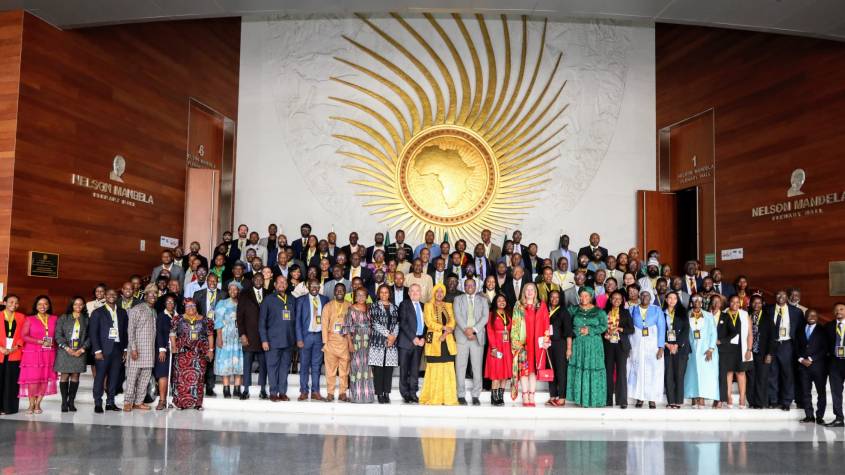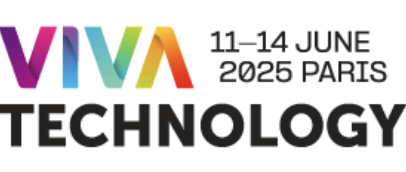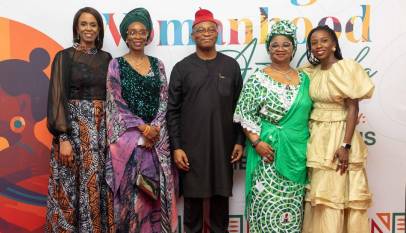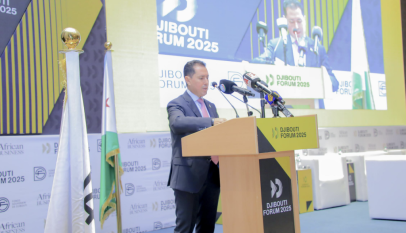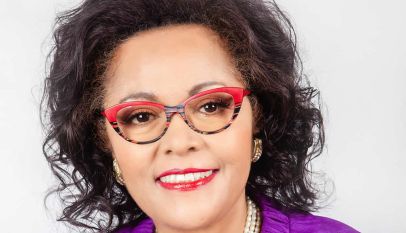3rd Africa Mining Forum: Reflecting on 16 Years of Africa Mining Vision’s Implementation
The 3rd African Forum on Mining was a critical platform for African mining stakeholders to reflect on over a decade and a half of implementing the African Mining Vision, the continent’s blueprint for resource-based industrialization and sustainable economic development.
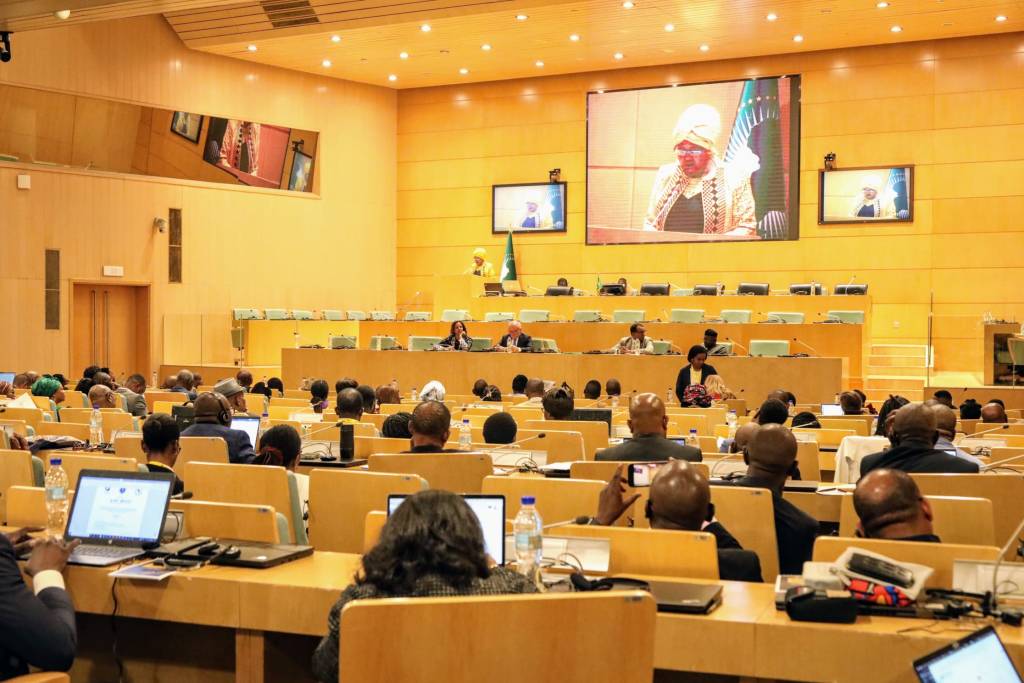
In 2009, African Union Heads of State and Government adopted the African Mining Vision (AMV) as the continent’s blueprint for resource-based industrialisation and sustainable economic development. AMV aims to transform the continent’s vast mineral wealth into a driver for inclusive growth, environmental sustainability, and economic diversification, shifting focus from raw resource extraction to value-added beneficiation and industrialisation.
The AMV seeks equitable benefit-sharing, environmental sustainability, and economic diversification, steering Africa away from the historical paradigm of mere resource extraction. It places the exploitation of Africa’s mineral wealth at the center of the continent’s drive for broad-based poverty reduction, industrialization and economic development.
In 2013, the African Minerals Development Center (AMDC) was established by the Summit of the African Union Heads of State and Government as a project domiciled under the Economic Commission for Africa (ECA). The Centre was created to provide strategic operational support and coordination for the implementation of the AMV and its Action Plan. In 2016, the Statute establishing the AMDC was adopted by the Twenty-Sixth Ordinary Session of the AU Assembly, and in 2018, the AU Assembly endorsed the Republic of Guinea’s bid to host the AMDC.
In 2019, the AMDC was officially handed over to the AU by ECA to start its transition journey to Conakry, Guinea. However, owing to the COVID-19 pandemic and political changes in Guinea, the move to Guinea was postponed. Since then, the interim AMDC Secretariat, now domiciled within the AU Commission, has served as the AU’s coordinating arm for the AU in the implementation of AMV. This arrangement seeks to ensure the effective implementation of the services of the AMDC through a coordinated approach under a semi-independent structure.
The AMDC is currently being supported through Phase II of the ACP-EU Development Minerals Programme, initiated by the Secretariat of the Organization for African, Caribbean and Pacific States (OACPS), financed by the European Commission, and implemented in collaboration with the United Nations Development Program (UNDP). This is to allow the AMDC to respond to AU Member States’ needs with the flexibility and swiftness needed to address the current challenges in the mineral sector.
As the entity leading AMV’s implementation, AMDC facilitates dialogue and knowledge exchange among mining sector stakeholders, including via the Africa Forum on Mining. The maiden Forum was held in 2019 in Accra, Ghana, under the theme: “Africa Mining Vision At 10: Looking Back, Moving Forward?” which coincided with the AMV’s 10th anniversary. The 2nd Forum was held in 2022 under the theme: “The Africa Mining Vision in the Time of Green Energy Transition and Digitalization: Challenges and Opportunities,” at Addis Ababa, Ethiopia.
Against this backdrop the 3rd Africa Forum on Mining was held in March 2025 under the theme: “The Africa Mining Vision at 16: Achievements, Challenges and Opportunities” where participants reflected on key milestones achieved by the AMDC in implementing the AMV, particularly on policy and strategy, governance, geology and information systems, artisanal and small-scale mining (ASM), minerals-based industrialization; community engagement including women and youth, and environmental and social considerations.
The 3rd Forum identified persistent challenges and barriers hindering the full realization of the AMV’s goals; Explored strategic opportunities for the African mining sector, particularly in the context of the green energy transition, value addition, and technological innovation; and Sought to strengthen partnerships between governments, private sector players, civil society, and regional organizations to enhance sustainable resource governance and regional collaboration.
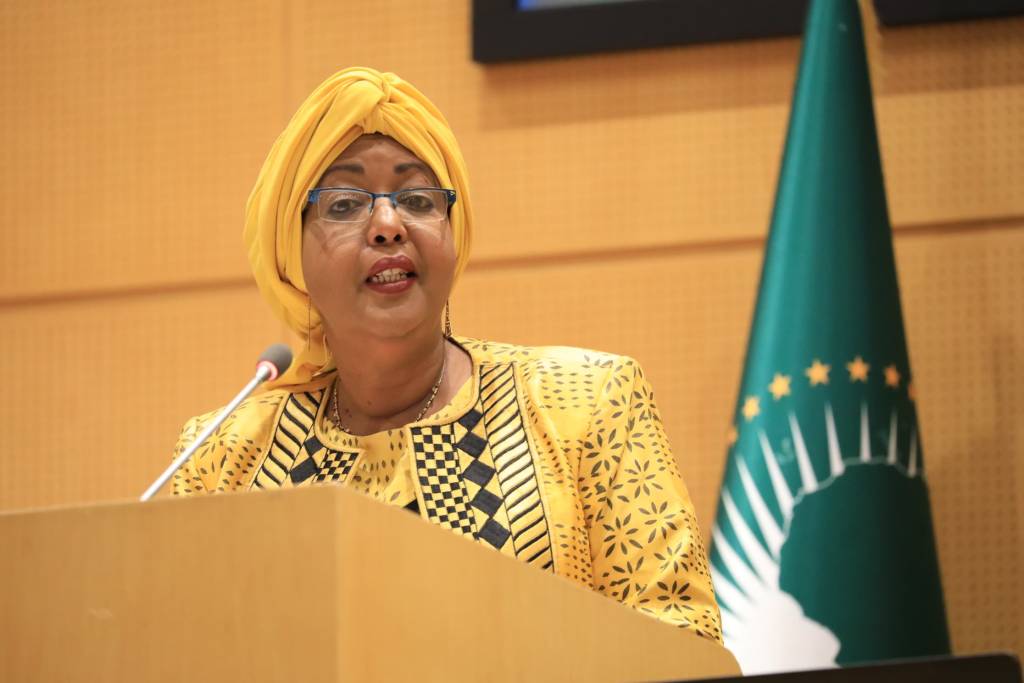
“Africa’s Challenge is Leveraging its Minerals for Sustainable Growth” – IMET Director
In her remarks at the opening of the Forum, Mrs. Ron Osman Omar, Director of Industry, Minerals, Entrepreneurship and Tourism (IMET) Directorate at the AU Commission said Africa has a vital role in the global mining sector, adding that the continent holds the key to realising the world’s ambitions for a just energy transition thanks to its endowment with unparalleled abundance of critical green minerals.
“These resources—from cobalt, lithium, and rare earth elements to nickel and copper—are vital not only for advancing renewable energy technologies and electric mobility but also for industrialising and moving up the value chains towards manufacturing and local processing of minerals, while also ensuring global energy security and meeting climate goals. However, the challenge lies in transforming this potential into equitable, sustainable growth for Africa while contributing to global progress,” Mrs Osman said.
The realisation that African citizens were largely not benefiting from its minerals endowment inspired the AMV 16 years ago and is also at the heart of the African Green Minerals Strategy (AGMS), recently endorsed by the AU’s Specialised Technical Committee on Trade and adopted by the AU’s Executive Council. AGMS, which aligned with the principles of the AMV and Agenda 2063, underscores Africa’s commitment to harnessing its green minerals for the benefit of its people while supporting the global green energy transition.
Mrs Osman commended the AMDC for driving Africa’s mining agenda forward, making significant strides in policy development, governance, and enhancing the minerals-based industrialisation process, from strengthening geological and information systems to improving the inclusivity of the sector through the active involvement of women and youth. She therefore called on AU Member States to ratify the Statutes of the AMDC to enable it to become a full-fledged specialised agency to pursue its mandate thoroughly.
The IMET Director said the green energy transition presents a unique moment for Africa to leverage its rich mineral resources for sustainable growth and economic development, just as the Forum provides a critical window to explore ways to harness opportunities in value addition, technological innovation, amidst the growing demand for critical green minerals.
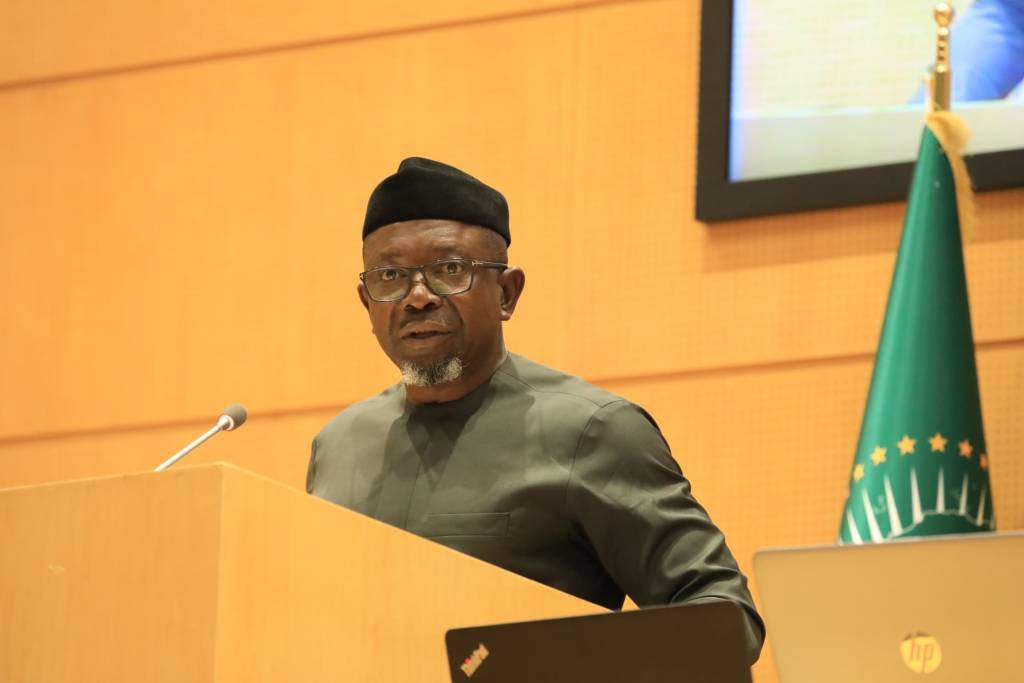
“Green energy transition opportunity for Africa’s industrialization” – Mr Naab
In his remarks, Mr Matthias Naab, Director of UNDP Regional Service Center for Africa, highlighted the longstanding partnership between the AU and UNDP in advancing the AMV agenda, which led to the operationalisation of the AMDC, describing the Centre’s establishment in 2013 as a pivotal step in operationalizing the AMV.
“It [AMV] envisioned a future where Africa’s mineral wealth would no longer be seen as a curse but a catalyst for broad-based socio-economic development, industrialization, and environmental sustainability. The AMDC has supported Member States in developing policies, strengthening governance frameworks, and promoting sustainable mining practices. These achievements are a testament to the collective efforts of governments, Regional Economic Communities, private sector players, and development partners,” Mr Naab said.
Mr Naab also praised the AMDC for being instrumental in advancing key continental agendas critical to ensuring that Africa’s mineral resources contribute to sustainable development and inclusive growth such as the AGMS and expressed his sincere appreciation to the EU and OACPS for their partnership and support for AMDC, through UNDP, without which none of the achievements of AMDC would have been possible.
Subsequently, Mr Naab said AMDC had advanced Harmonization of Geological and Mineral Information Systems across the continent through AMREC-PARC, to ensure that decision makers coherently manage mineral resources and build linkages with African capital markets to attract investment. This, he said, had helped strengthen the role and visibility of ASM and empowered artisanal and small-scale mining actors, particularly women, in gemstone and jewelry value chains.
Mr Naab said many African countries continue to grapple with challenges such as Weak governance that hinder equitable benefit-sharing; Environmental degradation caused by unsustainable mining practices; Limited capacity to leverage mineral resources for industrialization and value addition; Illicit financial flows depriving their economies of much-needed resources; as well as Extensive informality in mining, which leaves people and communities behind.
“The global shift toward a green energy transition presents tremendous opportunities for growth, industrialization, and infrastructure building in Africa, and the AGMS is the framework to guide this green growth. Africa’s minerals are strategic for its development and critical for the global economy, and industrialization and infrastructure building in Africa. While supplying minerals to the green transition, Africa needs to ensure that this demand translates into tangible benefits for our people, fostering inclusive and sustainable growth at home,” he concludes.
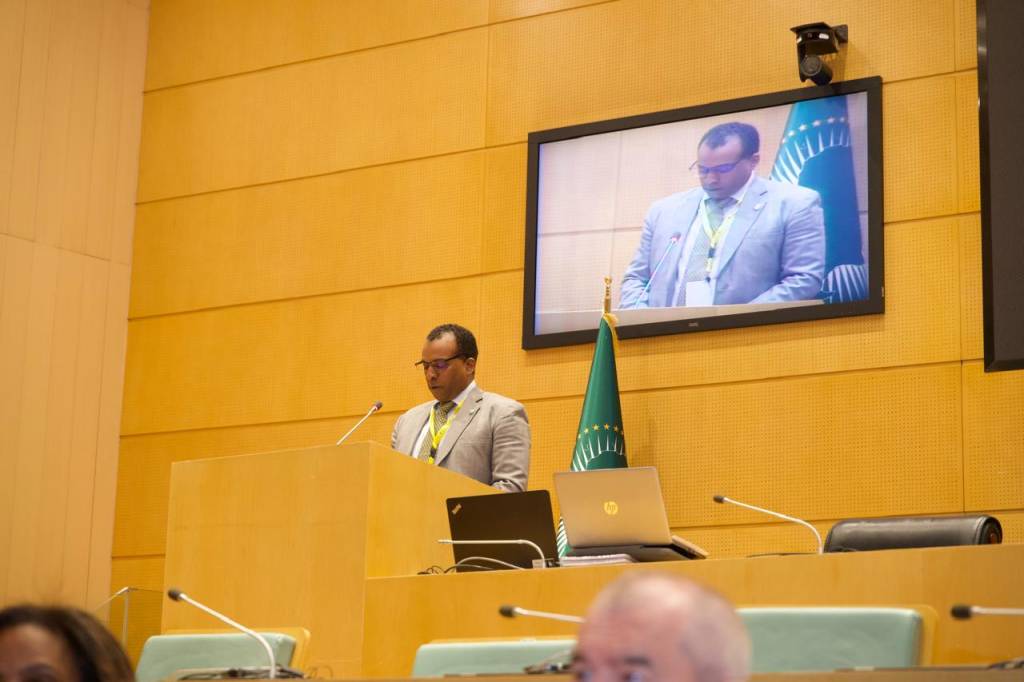
“OACPS Committed to Africa’s Mining Sector’s Competitiveness” – OACPS Sec Gen
In his remarks, the new Secretary General of the Organisation of African, Caribbean and Pacific States (OACPS) Mr. Moussa Saleh Batraki (represented), expressed the OACPS’s commitment to partnerships for Africa’s mining future, ensuring the mining sector is not only competitive but also socially and environmentally responsible. He said from the early days of the Lomé and Cotonou Agreements to the new Samoa Agreement, they had ensured Africa’s vast resources serve as a foundation for the continent’s industrialization and economic transformation.
“This year marks a critical milestone for the OACPS in the minerals sector. Many of you in this room played a pivotal role in crafting the OACPS Critical Raw Materials (CRM) Position Paper, which was presented at the OACPS Ministerial Mining Meeting in May 2024 in Cameroon, and later adopted by the OACPS Council of Ministers in July of that year. The Ministerial Mining meeting confirmed the strategic importance of CRMs in driving Africa’s economic diversification and industrialisation,” the OACPS Chief stated.
To this end, Batraki said in February 2025, the OACPS launched the ACP-EU Technical Assistance Facility on Commodity Resource Management (CRM), funded by the European Union and implemented by the European Investment Bank (EIB). He said the 10M Euro program will support the enabling, preparation, and implementation of CRM-related investment projects as well as provide targeted technical support to help OACPS Member States unlock opportunities in the CRM sector, strengthen governance, and attract responsible investment.
“The OACPS remains firmly committed to working alongside the African Union to ensure that Africa’s mining sector is not only competitive but also socially and environmentally responsible. To achieve this, we must mobilise resources and expand partnerships. This aligns with the OACPS Revised Private Sector Development Strategy, which calls for greater engagement with investors, financial institutions, and development partners to drive sustainable growth in the sector,” said Batraki.
The OACPS Secretary-General said one of the key pillars of their work in the mining sector has been the ACP-EU Development Minerals Programme, which has played a vital role in supporting ASMs across Africa, improving skills, enhancing livelihoods, and promoting responsible mining practices. He described women and youth as the main beneficiaries of the programme through which the OACPS had strengthened its collaboration with the AMDC, ensuring alignment with the AMV.
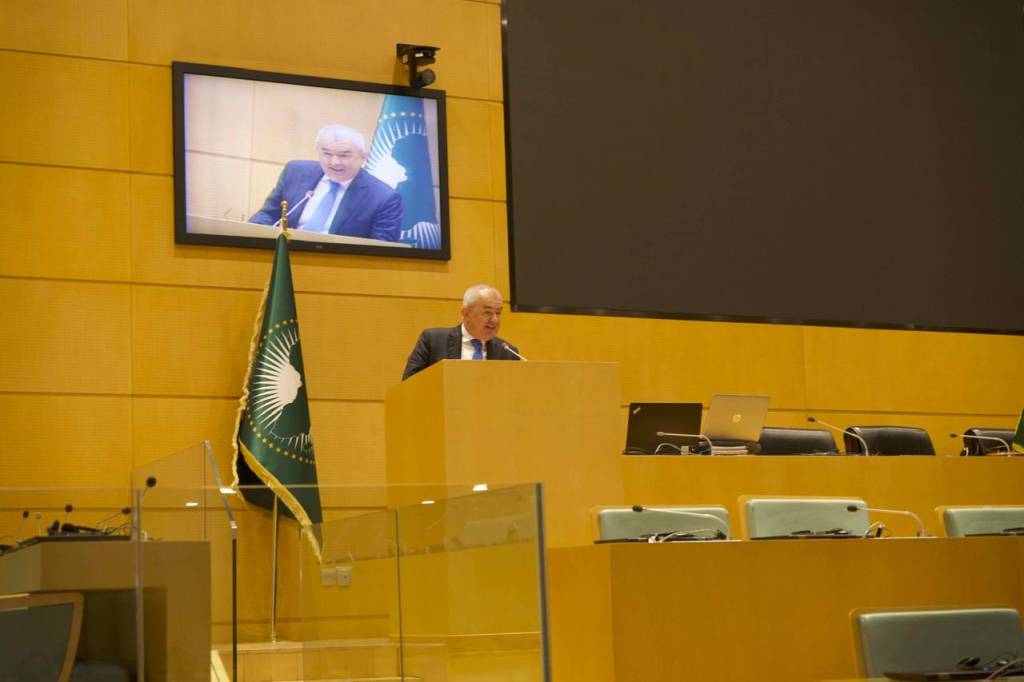
“EU Promoting Sustainable Mining Value-chains in Africa” – EU Rep
Mr Gianluca Azzoni, Head of Policy and Cooperation Section at the European Union Delegation to the AU, reaffirmed the EU’s commitment to supporting Africa’s industrialisation and the development of sustainable and resilient value and supply chains by transitioning the Global Gateway Africa-Europe Investment Package – a comprehensive initiative aimed at mobilising at least €150 billion in investments by 2027 to support sustainable development in Africa – from its initial phase to a full-scale implementation.
“The EU has established four bilateral partnerships with African countries to promote sustainable raw material value chains, with an additional ten partnerships in place with countries worldwide. These partnerships support local value creation while ensuring the EU’s secure, sustainable, and resilient access to critical raw materials. We apply the highest environmental, social, and governance standards to guarantee long-term benefits for local communities and partner countries,” he said.
In addition to these bilateral endeavors, Mr Azzoni said the EU was committed to supporting good governance, transparency, and social protection in the critical raw materials value chain by ensuring adherence to global best practices such as the Extractive Industries Transparency Initiative (EITA) and strengthening governance frameworks and technical capacities through instruments like the PanAfGeo+ program.
“The recent announcement of the first clean trade and investment partnership between the EU and the government of South Africa is still fresh. This partnership aims to secure raw materials, clean energy, and clean technologies for Europe’s green transition, while offering South Africa an attractive financial package to consolidate cooperation in areas such as science and technology, education, climate action, peace and security, health, and critical minerals,” Azzoni said.
In the course of the 3-day convening, stakeholders at the 3rd African Forum on Mining reflected the global shift toward a green energy transition and digital economy acceleration which presents tremendous opportunities for Africa to move towards green industrialisation within the framework of AGMS. Likewise, the AMV places the exploitation of Africa’s mineral wealth at the center of the continent’s drive for broad-based poverty reduction, industrialisation and economic development.
Indeed, Africa’s minerals are vital for the global green transition efforts. What Africa must do is ensure that this demand translates into tangible benefits for its people, fostering inclusive and sustainable growth at home. The Forum concluded with a strategic action plan to accelerate the AMV’s implementation, practical recommendations to address existing challenges, and capitalize on opportunities in Africa’s mining sector through strengthened collaboration between stakeholders to advance sustainable mineral resource development.

